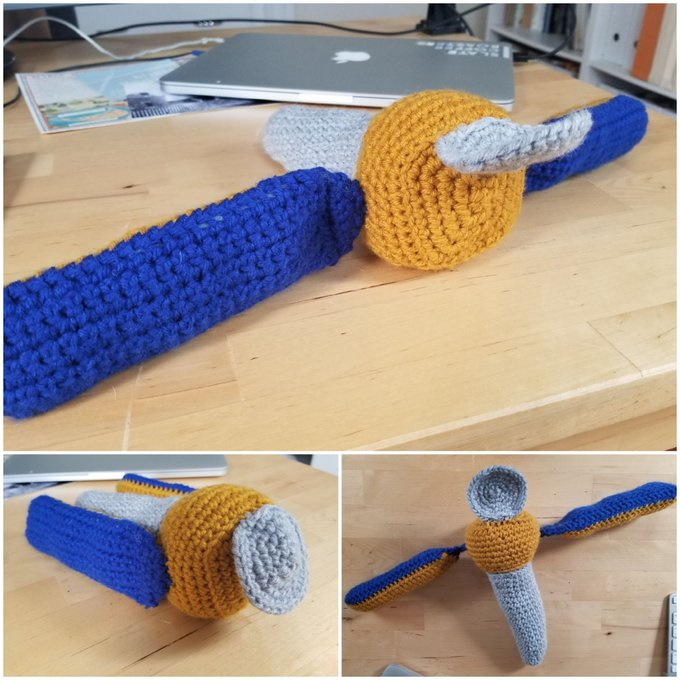New Year, new creativity – where could it lead?

Dr Rodolfo Montez Jr.’s crocheted Chandra X-ray telescope.
Chances are that the lockdowns and social restrictions of the past year saw you seeking entertainment and distraction through hobbies and home-based interests. A year unlike any other, 2020 prompted many people to try new activities, from playing the guitar to cooking to sewing. Such new-explored creativity is great for mental well-being and good, old fashioned enjoyment, but, as we enter the much-anticipated new year, it is worth considering what creativity can offer you in the long term. How could your creativity help you in your study or work?
An astrophysicist based at Chandra X-ray Center at the Smithsonian Astrophysical Observatory in the US, Dr Rodolfo Montez Jr. highlights the opportunities afforded by a sound understanding of maths and physics. However, he also emphasises the benefits of creative pursuits. From fencing to dancing to graphic design, Rodolfo enjoys extra-curricular activities that give him, well, that little bit extra. Of his more recent hobbies, Rodolfo says, “Crocheting gives me something to do while I mull over a problem, drawing gets me 50% of the way there, but work is still on the periphery, while cooking takes me to a different headspace entirely.” Rather than just a ‘bolt on’, creativity helps Rodolfo’s thought processes and supports his work. One look at Rodolfo’s crocheted Chandra X-Ray space telescope and we are sold!
Based at the University of Colorado Boulder in the US, Dr Mark Rentschler is a mechanical engineer developing mobile robotic capsule endoscopes. He is also a passionate advocate for creativity. “I recommend you develop your creative side in any medium that speaks to you, whether that is music, art, sculpture, dance or doing something creative with your hands.” Mark is developing sophisticated medical robots that will improve procedures for patients and save lives. Alongside the fundamentals of physics and maths, it is his love of learning something new and appreciation of creativity that enable such innovate mechanical engineering.
Being creative with her hands is an important skill that has fed into Dr Wenping Yin’s career. She explains, “[As a Child] I enjoyed all kinds of hands-on work. Almost all the electronic devices in my parent’s home were dismantled by me at some point!” Now a materials scientist and engineer at ARC Centre of Excellence in Exciton Science and Monash University, Wenping is working to harness fluorescent materials as a means of detecting harmful levels of toxic substances, which will benefit fields such as agriculture and defence. Acknowledging the importance of her early creativity, Wenping explains, “My parents supported my creations – which I think is related to the motivation and interest in science I developed later.”
Enjoying hands-on activities, developing creative skills and exploring interests beyond the academic are regularly highlighted by the incredible researchers we work with as vital to their success. Recreational hobbies relax people and enable them to step back from the complexities of their work, but, more than that, they encourage the new perspectives, thought processes and curiosity crucial to their research endeavours. Without creativity, many researchers would not achieve the amazing things they do.
So, as we enter 2021, how will you resolve to boost your creativity and where will it lead you?
